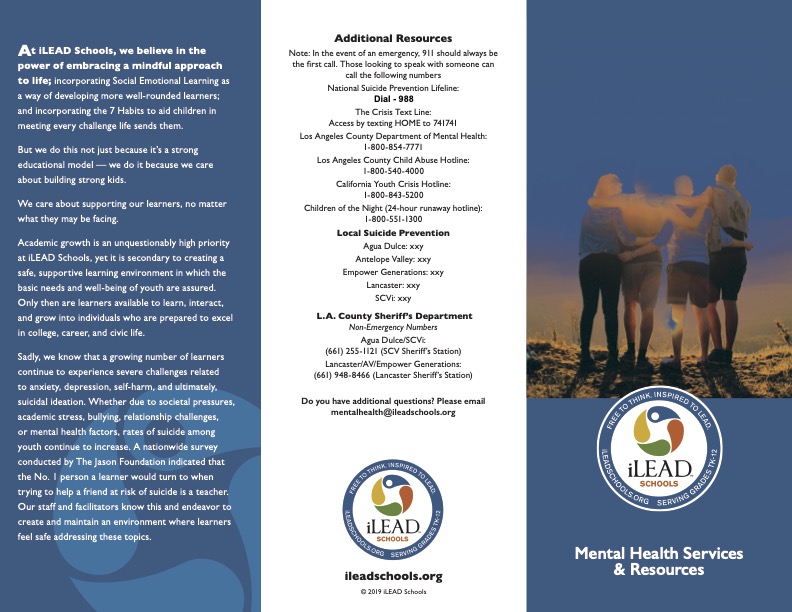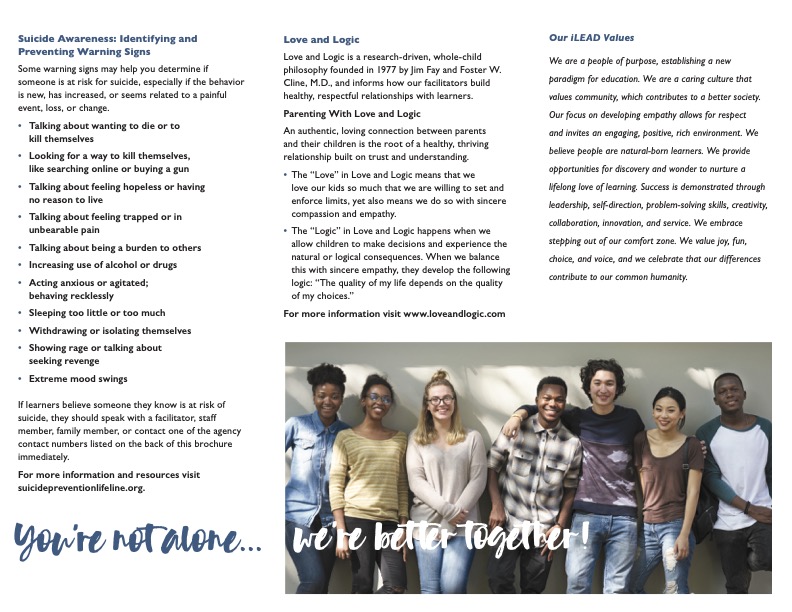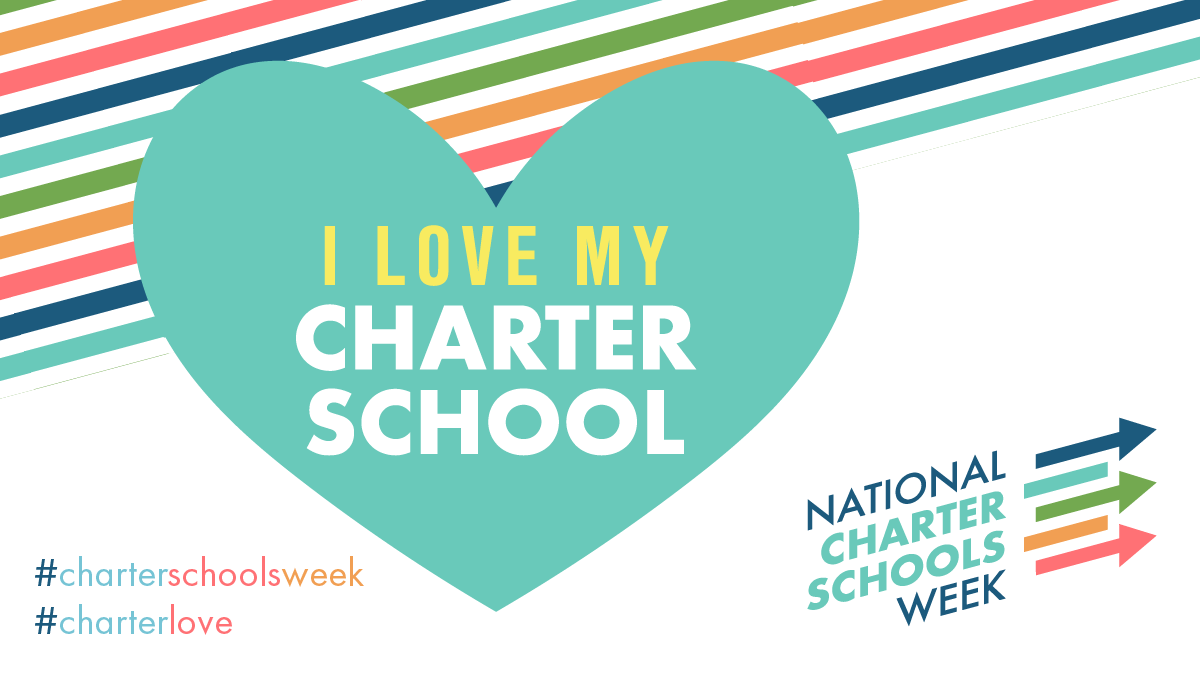Hello Parents and Families,
The Student Support Counseling Team is hosting an Education and Health Awareness Campaign for the 2022-2023 school year. Each month various awareness topics will be discussed through presentations, flyers and resources. For the month of September, the focus will be Suicide Awareness/Prevention for all grades:
K-8th grade will have lessons available on building healthy friendships, kindness, gratitude, and other age appropriate information that contributes to building positive mental health.
9-12th grade will have lessons available on suicide awareness, prevention and support. These presentations are in line with iLEAD Schools Mental Health Policy found on your school’s website.
For more questions on this or other campaigns, please contact your student support counselor through our student support counseling page or follow us on instagram.com/studentsupport












 Courtney Ellis
Courtney Ellis

